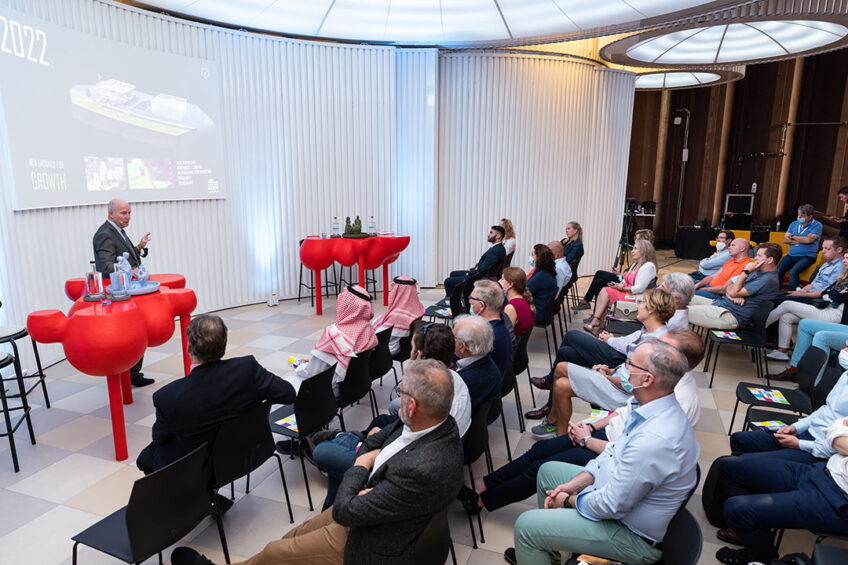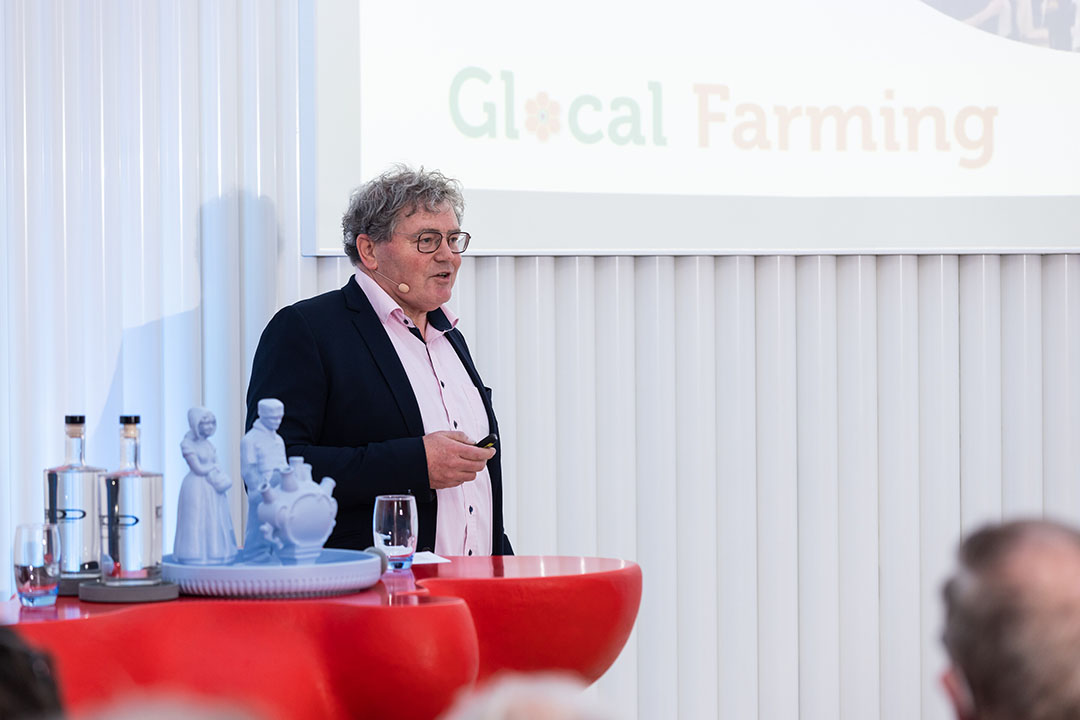HubOrange to showcase the regionalisation of food production at VIV

As global food systems are vulnerable in the time of a worldwide crisis, the role of local food production is essential as an add-on to global supply chains. That is why co-creation network HubOrange wants to showcase the regionalisation of food production. Innovative concepts were launched during VIV MEA and will really take off during VIV Europe at the end of May 2022.
At VIV MEA in Abu Dhabi a delegation of some of the most innovative Dutch entrepreneurs gave presentations on how they see the challenge of feeding an increasing world population against the backdrop of the ever increasing demands that the consumer places on the industry.
As one of the instigators of co-creation network HubOrange, Noud Janssen knows all about the challenges faced by the livestock industry. During his time as a poultry farmer he saw the industry focus on economies of scale, to gain higher meat yields and more eggs with less feed.
“A logical development which is still persued today. However, our experience from one of the most developed markets in the world has seen the rise of other consumer demands, too. These range from animal welfare concerns to sustainability, and from strengthening biosecurity to improving the poultry house climate with regard to ammonia and fine dust, for example,” he says.
Glocal
HubOrange agrees that food production is a worldwide business. That said, it also sees that the regionalisation of food production can help with food security on the one hand, and improve the connection between farmer and consumer on the other.

“We need somthing which could be called ‘Glocal Farming’ to secure fresh food locally,” said Janssen, emphasising the need for a new worldwide focus on the regionalisation of food production by starting local. “Food and farming are disconnected in the minds of consumers. Due to environmental concerns in the Netherlands, the government is planning to reduce the number of farms substantially and, apart from the farmers themselves, no one seems to really care. As consumers perceive it, food comes from the supermarket and they have no clue that there is a hard working farmer behind it. That is unsustainable and needs to change.”
City farm
As the co-creation network sees it, local farming with scalable concepts could be cutting edge. “We need high tech to get closer to nature,” said Janssen.
One of the examples HubOrange is showcasing is the Floating Farm in the middle of Rotterdam city. Owner Peter van Wingerden presented the concept in Abu Dhabi. “We are currently in the process of promoting a floating egg farm and vegetable prototype based on the very same principle and also located in Rotterdam harbour adjacent to our existing floating dairy farm. The Floating Farm is truly iconic. It attracts public interest in a novel way and informs people about agricultural husbandry while showing them how fresh products are produced and processed daily in the city.”
Noud Janssen too, sees great potential from bringing a new floating layer farm close to the end consumer. “When production starts, the eggs will be packed and sold in specially designed small boxes. Another plan is for breaking eggs to produce egg burgers. Manure will be pre-dried on the farm and mixed with manure from the dairy farm. With the end product going to consumers as fertilizer for lawns and small vegetable plots. Plus the farm will be open to the public. Transparent walls will give them a view of the entire operation, thus allowing them to understand where their food actually originates.”













